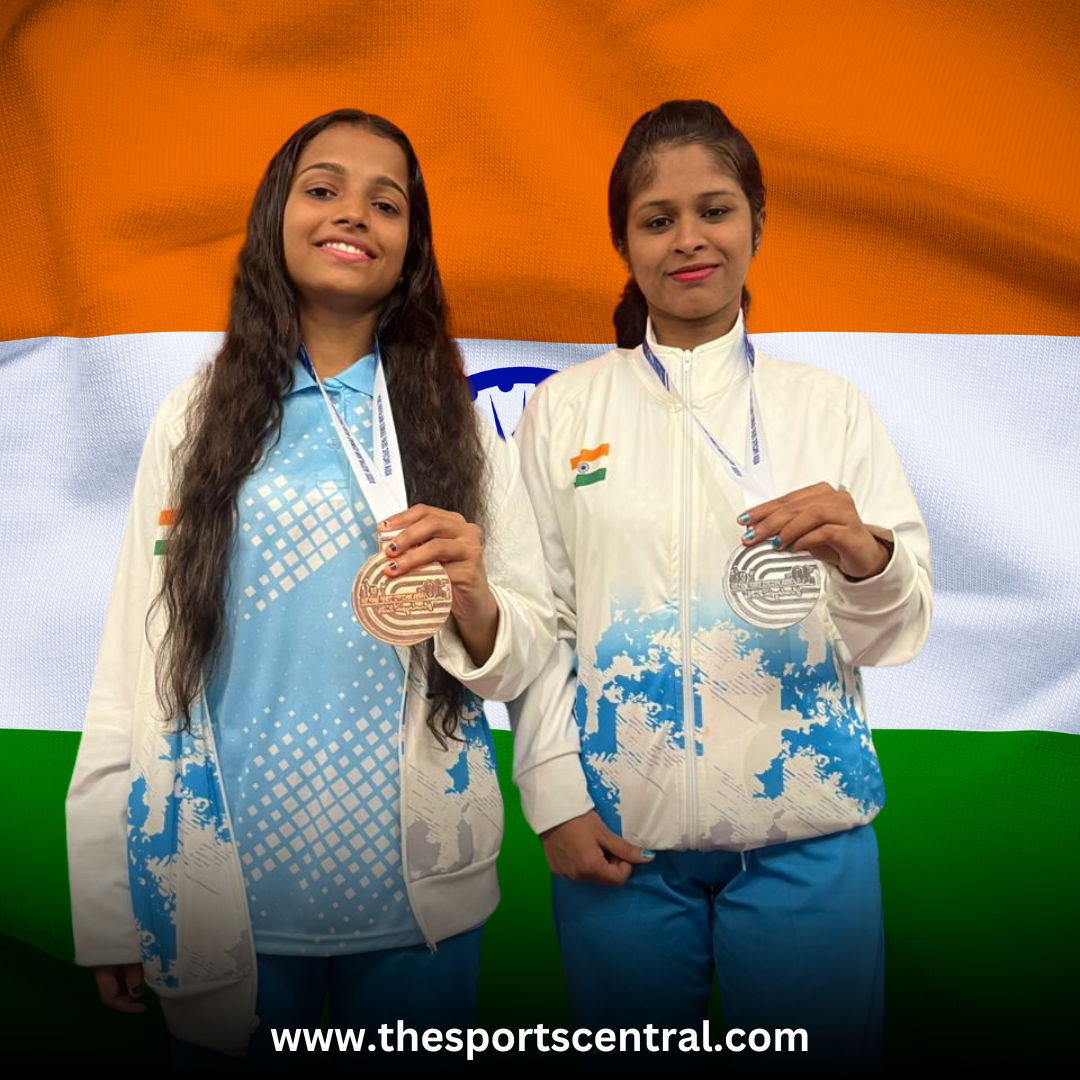India’s athletes delivered an outstanding performance at the Asia-Pacific Deaf Games 2024 held in Kuala Lumpur, Malaysia. Securing a historic 55 medals, including eight gold, the Indian contingent marked a significant leap from their previous performance in 2015, when the team won just five medals. The achievement reflects India’s growing commitment to inclusivity in sports and highlights the transformative efforts in fostering talent among differently-abled athletes.
Felicitation by Union Sports Minister Mansukh Mandaviya
Union Sports Minister Mansukh Mandaviya hosted the victorious contingent, which included athletes, coaches, and support staff, at his residence. In his congratulatory speech, the Minister lauded the team’s monumental progress, stating, “In 2015, we had sent a smaller team and returned with lesser medals. But it gives me immense pleasure to state that 68 players competed in seven different disciplines this time and have won 55 medals.”
He also emphasized the collective pride of the nation in their achievements, adding, “When you compete internationally, you don’t win for yourself, the nation also wins with you.”
The Minister credited the success to the Sports Authority of India (SAI) and other government initiatives aimed at enhancing sports infrastructure, governance, and specialized coaching across the country.
Government Support and Training
The preparation for the Asia-Pacific Deaf Games was backed by extensive support from the Sports Authority of India (SAI). Key contributions included:
- Training Camps: Held at specialized centers in Delhi, Sonepat, and Lucknow, these camps provided athletes with high-quality coaching and world-class facilities.
- Travel and Accommodation: SAI ensured that the contingent faced no financial hurdles, covering all travel and lodging expenses.
Such initiatives exemplify the government’s commitment to empowering athletes from diverse backgrounds and ensuring they compete on equal footing with international peers.
India’s Medal Haul: A Breakdown
India’s 55-medal haul included victories across seven sports disciplines. The athletes demonstrated exceptional skill, resilience, and determination. Here’s a detailed breakdown of the medals:
1. Athletics (28 Medals)
- Gold (5): Dominance in track and field events was a highlight.
- Silver (12): Stellar performances in races and jumping events secured numerous podium finishes.
- Bronze (11): A testament to the depth of talent in the contingent.
2. Badminton (6 Medals)
- Silver (3): Showcasing finesse and agility on the court.
- Bronze (3): Consistency across singles and doubles matches.
3. Chess (3 Medals)
- Silver (1): Strategic brilliance was evident in competitive matches.
- Bronze (2): The team displayed exceptional tactical acumen.
4. Judo (7 Medals)
- Gold (2): Aggression and technique brought India the top spot.
- Bronze (5): A strong performance across weight categories.
5. Table Tennis (3 Medals)
- Silver (1): Precision and quick reflexes led to remarkable finishes.
- Bronze (2): Exemplary teamwork in doubles events.
6. Wrestling (8 Medals)
- Gold (1): Mastery in grappling won gold for India.
- Silver (1): Hard-fought battles resulted in a second-place finish.
- Bronze (6): Consistent performances across different styles and weight categories.
Climbing the Medals Table
India finished fifth on the overall medals table with:
- Gold: 8
- Silver: 18
- Bronze: 29
The feat underscores a dramatic improvement in performance, reflecting the hard work of athletes, coaches, and administrators. India’s rank in the Asia-Pacific Deaf Games symbolizes the nation’s growing prominence in inclusive sports.
Key Athletes and Performances
While every athlete contributed to the success, some standout performances deserve special mention:
- Athletics Stars: The track and field athletes dominated multiple events, securing five gold medals and creating a ripple effect of motivation across the contingent.
- Badminton Talent: Players displayed sheer determination, bagging six medals against tough competition.
- Judo Champions: With two gold medals, the judokas highlighted their skill in tactical combat.
The Rise of Deaf Sports in India
India’s performance in the 2024 Asia-Pacific Deaf Games reflects a broader trend of increasing support for deaf sports in the country. Several factors have contributed to this rise:
1. Enhanced Training Facilities
The establishment of dedicated training centers equipped with advanced tools and expert coaches has provided a solid foundation for athletes.
2. Focus on Inclusivity
Government programs now emphasize the inclusion of differently-abled athletes in mainstream sports initiatives.
3. Global Exposure
Participation in international events ensures athletes gain experience, confidence, and a competitive edge.
4. Recognition and Motivation
The felicitation by Union Minister Mansukh Mandaviya symbolizes the nation’s appreciation for its athletes, motivating future generations.
Building on the Momentum
The remarkable performance in Kuala Lumpur sets the stage for even greater achievements in future competitions. The following steps will ensure sustained success:
1. Expand Training Camps
More athletes from diverse regions should have access to world-class training facilities.
2. Improve Scouting Programs
Identifying talent at a young age will help nurture potential medalists.
3. Enhance Financial Support
Increased funding for equipment, travel, and training will remove barriers to participation.
4. Leverage Technology
Integrating wearable tech and analytics can optimize training and performance.
Inspirational Stories
The Asia-Pacific Deaf Games witnessed several heartwarming stories of resilience and determination. Athletes overcame personal and professional challenges to achieve glory for the country. These stories serve as a reminder of the indomitable human spirit and the transformative power of sports.
Conclusion
India’s stellar performance at the Asia-Pacific Deaf Games 2023 showcases the nation’s growing prowess in inclusive sports. With 55 medals, including eight gold, the athletes have set a benchmark for future competitions. The government’s support, coupled with the athletes’ dedication, has proven to be a winning combination.
As India continues to invest in sports infrastructure and inclusivity, the future looks bright for its differently-abled athletes. The success in Kuala Lumpur is not just a victory for the contingent but a celebration of a nation striving to empower every individual to reach their full potential.










